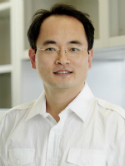Generating pluripotent stem cells: Differential epigenetic changes during cellular reprogramming Journal Article
| Authors: | Tobin, S. C.; Kim, K. |
| Article Title: | Generating pluripotent stem cells: Differential epigenetic changes during cellular reprogramming |
| Abstract: | Pluripotent stem cells hold enomous potential for therapuetic applications in tissue replacement therapy. Reprogramming somatic cells from a patient donor to generate pluripotent stem cells involves both ethical concerns inherent in the use of embryonic and oocyte-derived stem cells, as well as issues of histocompatibility. Among the various pluripotent stem cells, induced pluripotent stem cells (iPSC) - derived by ectopic expression of four reprogramming factors in donor somatic cells - are superior in terms of ethical use, histocompatibility, and derivation method. However, iPSC also show genetic and epigenetic differences that limit their differentiation potential, functionality, safety, and potential clinical utility. Here, we discuss the unique characteristics of iPSC and approaches that are being taken to overcome these limitations. © 2012 Federation of European Biochemical Societies. Published by Elsevier B.V. All rights reserved. |
| Keywords: | stem cell; differentiation; reprogramming; epigenetic; ipsc; esc; ntesc; pesc |
| Journal Title: | FEBS Letters |
| Volume: | 586 |
| Issue: | 18 |
| ISSN: | 0014-5793 |
| Publisher: | Wiley Blackwell |
| Date Published: | 2012-08-31 |
| Start Page: | 2874 |
| End Page: | 2881 |
| Language: | English |
| DOI: | 10.1016/j.febslet.2012.07.024 |
| PROVIDER: | scopus |
| PUBMED: | 22819821 |
| PMCID: | PMC3589521 |
| DOI/URL: | |
| Notes: | --- - "Export Date: 4 September 2012" - "CODEN: FEBLA" - "Source: Scopus" |
Altmetric
Citation Impact
BMJ Impact Analytics
Related MSK Work





